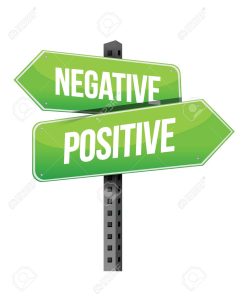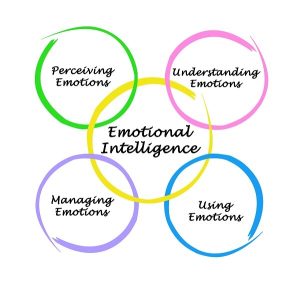Views: 12
The Role of Emotion in Consumer Decision Making in Nigeria.

In today’s Nigerian marketplace, buying decisions are influenced by more than just price and product quality—emotions play a powerful role in shaping consumer behavior. From the excitement of purchasing a trendy fashion item in Lagos to the trust built when buying food supplies in Abuja, emotions often drive what Nigerians choose to buy and from whom. Understanding the psychology of emotional connections can help local businesses, e-commerce platforms, and brands in Nigeria create stronger customer relationships, boost sales, and stand out in a highly competitive market. This article explores how emotional triggers influence consumer decision making in Nigeria, and how businesses can tap into these insights to increase conversions and loyalty.
Making decisions about purchases is a standard part of everyday life in Nigeria. While it may seem simple, the process is quite complex, as emotions play a significant role in shaping our choices, even for seemingly rational decisions.
What is the role of emotions in consumer decision-making in Nigeria?
To better understand the role of emotions in consumer decision-making in Nigeria, Let’s begin by looking at what the word emotions means.
Emotions are unique to humans and are often associated with objects and other things of value. As a result, different persons or individuals respond to the issue of emotions differently, each with his own personal attachment.
The responses we often get from different shows of emotions are often used to measure the standard of human worth, moral judgement, and sensitivity at different levels. The result of this is further used to influence the production of different products and services in the market and the continuous availability of these products in the Nigerian market.
Just as individuals’ preferences vary, so does the business landscape. Making definitive decisions in these organizations can be complex, as businesses thrive by making sound decisions based on people’s emotional states. The emotional capacity of a business’s customers directly influences its financial success or failure, underscoring the importance of emotional intelligence in business strategy.
Decision makers who feel less concerned about their consumers or clients seem to lose a lot of customers when the wave of emotion trolls in.
There are different kinds of emotions related to man. All these emotions have different responses and attitudes associated with individuals, such as anger, joy, pain, and love. For example, when a person is angry or sorrowful, it can lead to poor decisions and a higher risk rate. This is because, in their present state, what society feels is not necessary to them. They’d choose to do whatever they can to be happy, but that often leads them to make more bad choices.
Although we do not neglect the fact that anger or sorrow can be a benchmark used in evaluating an individual or society, especially when you’re getting more negative, you can use the opinion of that individual to judge his preference since that individual is a lot more sincere about certain things than he usually would.
Sometimes, these negativities and attitudes can also help an individual make a good decision since, as we said, the individual is, to some extent, more sincere to himself than he would be on a typical day.
In other cases, mood and decisions work in a rotating format. One time, you’re happy; the next, you’re so sad that you don’t know why. Well, that’s just how human emotions and feelings work. You do not know when or why something happened. One good is the choices you make in the presence of two bad or good products. In these scenarios, you’d wonder what bad or good options best soothe you.
At that point, it’s not about whether the products are wrong but which can be most valuable even in its imperfect state. Human emotions just tend to adapt or shift preferences due to time and environment.
How do emotions influence consumer behavior and the decision-making process in Nigeria?
When it comes to consumer behavior and decision-making in Nigeria, emotions are not just important, they are pivotal in shaping consumers’ mindsets and perspectives about a particular product and brand. Emotions impact the decision-making process of different people at different levels, driving them to sometimes make either conscious or unconscious choices. This understanding can significantly inform marketing strategies and consumer engagement, making it a crucial aspect for businesses to consider.
These conscious choices would further lead to either a positive or negative buying choice dependent on the individual’s current emotional state, while unconscious choices can be made by the individual.
Positive vs Negative Emotions

Positive or negative responses to emotion all affect an individual’s buying behavior. Positive emotions lead to a more ethical buying habit, while negative responses to emotions act as a complement to positive emotions. In that, we mean to say that for an individual responding to emotions in the harmful, purchasing products is often based on complementary buying. A good example is shopping for things you don’t need.
Understanding how your consumers respond to their different emotional changes would help you know how to meet their required needs. From creating a more effective marketing strategy to customer satisfaction and building long-term producer and client relationships, knowing your customers’ emotions would help producers increase the gain rate and customer loyalty since they build their strategy around their customers’ choices, letting these customers know that they do only make products. Still, they’re also interested in the customers well being.
Producers and marketers in Nigeria can always bank on the emotional study they carried out to tailor their production, promotions, or advertising schedules to meet consumer preferences and ensure they didn’t flop.
Does emotion trigger impulsive buying?

Yes, emotions trigger impulsive buying in Nigeria. A recent study on how people make purchases within the country shows that individuals are in the habit of purchasing based on feelings or emotions. A vivid example is choosing to buy Ice cream on days when you feel sad. People often feel that getting ice cream on those sad days has a way of cheering them up; for some, it works.
When bored, stressed, angered, in a good mood, or even a little excited about certain things, these emotions trigger an individual to buy things they know they don’t need just in the spur of the moment to satisfy their emotions. It’s like seeing a lady going luxury shopping just because she’s in a good mood. Guess what? She’d buy both things she doesn’t need just because she’s happy. This same thing can also happen to any other individual. Just being in the spur of the moment alone makes you do things you’d not do on a typical day.
In the same way, when you’re not feeling in a vital state, you tend to find more ways to be energetic. It’s like hitting the gym not because you want to but because you’re being told by a good friend that you’re either too skinny or a little heavier person.
These various emotions just have a way of working into the mindset of an individual and triggering impulsive buying.
What is Emotional Appeal, and How Does Emotional Appeal Affect Consumer Buying Behavior?

Emotional appeal in Nigeria is the process by which producers create products that attract the attention of consumers, influence brand visibility and buying behavior, and further help the individual make purchases based on the fact that the product appeals to his emotions.
This has a significant influence on the purchasing behavior of consumers in Nigeria, and since most marketers know this, it’s been used as an essential tool in running ads online. Ads with this mindset always make or convert more of their online audience into customers.
These emotional appeals, such as love, happiness, and others, help propel consumers to make choices based on their current opinion of you, thereby increasing your chances of making sales. They attract clients to your business, propel purchase intention, influence the brand’s attitude, and help consumers have better buying behavior.
Emotional appeals work well in the automobile industry, as this industry thrives on both aesthetics and physical nature. The consumer’s emotion plays a major role in brand selection, and by selling features, class, and style to the consumer, he feels assured that he’s getting his money’s worth.
What is emotional intelligence?

Emotional intelligence is defined as the ability of an individual to identify and channel one’s own emotions and the emotions of others into decision-making and problem-solving processes. Those who possess higher emotional intelligence rates display much lower levels of impulse drive by both positive and negative emotions.
The higher EI individual knows how to make more rational decisions that can benefit him and influence his financial decisions, which further impact his financial well-being. The emotions of these emotionally intelligent people make their decisions to solve a particular problem.
How emotional intelligence helps in decision making in Nigeria
In making valid decisions, it is essential to recognize, understand and manage your emotions rightly. This is because when it comes to decision-making, emotionally intelligent people often develop skills that help them see through their emotions and do what they need to, regardless of how they feel.
As a result of these skills, individuals can make their emotions work in their Favour instead of against them, which decreases their ability to let their emotions rule over their decision-making process and purchase rate.
Emotional intelligence in Nigeria can further help these individuals live above their emotions by creating a barrier that always keeps them in Check. Some of these barriers can come in the form of strict self-awareness of your own emotions and weaknesses and how they can affect your total well-being, social awareness of your environment and feelings, self-regulating thoughts and actions in the bid to gain total control, and then building valuable skills to withstand the pressure being put in place by our emotions.
What is a consideration set, and what role does the consideration set play in consumer decision-making?

A consideration set is a group of products or services that a buyer has in mind to purchase but needs to evaluate before making a final decision on who to buy from. The consideration set can also be called the evoked or choice set.
The set size usually depends on the type and amount of products the individual is considering and how difficult it would be to decide.
A good example is picking from a set of dishes in a restaurant you’d like to have. The menu includes many of your favorite dishes that you want to have but are currently on a budget. The consideration set for this particular purchase would include the number of dishes you prefer on a large scale for you to pick from. On the other hand, a consideration set for condiments would be pretty small since it would be a significant brand the consumer has used and is comfortable with.
The consideration set helps to influence the buyer’s journey, from what he needs to what product he wants to buy and what his final choice becomes. The buyer often has many options to pick from and little or no time to vet accurately, so they don’t precisely evaluate all the products, only those they’ve used before. So instead of evaluating all the products, they tend to pick from a smaller lot of specified options, which have been reduced into a set more accommodating for him, specific and relevant to his needs.
Factors Influencing Consideration Set
Although the buyer’s decision influences the final consideration set, several parts of a buyer’s journey can be influenced:
- Brand awareness, marketing, strategy and positioning.
- Product and service packaging
- A clear and concise call to action
- Receiving a warm welcome and standout help from a salesperson.
As we’ve considered throughout this article, emotions play a vital role in the decision-making capacity of every individual in Nigeria. From the thought of purchase to what they want to purchase and its purchasing rate, individuals’ emotions differ. Depending on the decision we choose to make, it is essential to remember that emotions provide more context information that helps us make more holistic and purpose-driven choices.
By understanding the issues pertaining to relations and their role, both the producer and the customer can make better-informed choices that align with their goals and priorities.
When it comes to consumer decisions specifically, recognizing the emotional factors that shape our consideration sets is essential for marketers to truly understand their customer’s needs and decision-making processes in Nigeria.
By kingkentus








You must be logged in to post a comment.